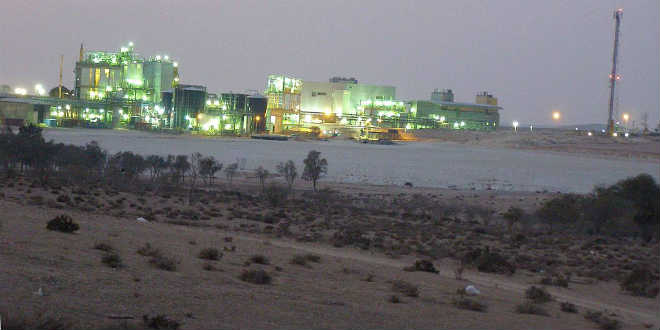And the LORD God took the man, and put him into the garden of Eden to dress it and to keep it. (Genesis 2:15)

As part of a governmental push to encourage people to move to the Negev, several environmental projects are underway in the region. Most notable among them are the opening of Israel’s current largest solar power field, the groundbreaking of an even larger one to be built in the coming year, and the connection of the first chemical factory to the new national natural gas network.
Once considered the most polluted region of Israel, Ramat Hovav, an industrial zone 12 km (7 miles) outside Beersheba in southern Israel, is undergoing a significant environmental rehabilitation.
Ramat Hovav is the center of Israel’s chemical production industry, with as many as 19 chemical factories. It is also the location of Israel’s toxic waste disposal facility. It has a long history of environmental controversies and accidents. Workers and frequent visitors experienced an increased risk in developing cancer, and residents of the surrounding area have a higher rate of birth defects than the rest of the country. Ramat Hovav asked the government to participate in the costs of cleaning up the area, and in 2003, $90 million were authorized for the task. Now a number of positive changes taking place have altered the face of this once toxic locale.
Toxic chemicals that had been stored at the site in barrels were incinerated, and evaporation pools, which had been leaching toxic waste into the ground due to faulty construction, were rebuilt to conform to higher standards. Reinforced concrete, pipes and disposal all keep chemicals out of the water supply. The industrial zone now supports a park, Park Hadekalim (Palm Park), in which 100 new palm trees were planted this year, and the local council hosts an annual bikeathon. The industrial zone was even renamed Neot Hovav (Hovav Oasis) Eco-Industrial Park.
The first factory in Israel to be powered by natural gas was hooked up this week in Neot Hovav to the new national natural gas grid. This is environmentally significant, as natural gas is the cleanest burning fossil fuel. It produces 29% fewer carbon emissions than oil and 44% less than coal per joule of energy produced. Water and Energy Minister Silvan Shalom attended the inauguration on Tuesday.
The same day, also in the Negev’s northern region, about an hour away, SunPower Israel Corporation opened the country’s largest solar energy field. Located in Moshav Mivtahim, it covers 25 hectares of land and is expected to produce enough power to supply the needs of approximately 3,000 households.
“Renewable energies are the future of the electricity sector,” the busy Shalom said at the launch ceremony. “The development of renewable energy will lead to the diversification of energy sources and thus ensure energy security and availability in the Israeli electricity market.”
The Moshav Mivtahim field will not remain the largest in the country for long, however, as Energix Renewable Energies also broke ground this week on its own field in none other than Neot Hovav. The Neot Hovav solar energy field is expected to generate 37.5 megawatts of energy, enough to supply 15,000 households.




